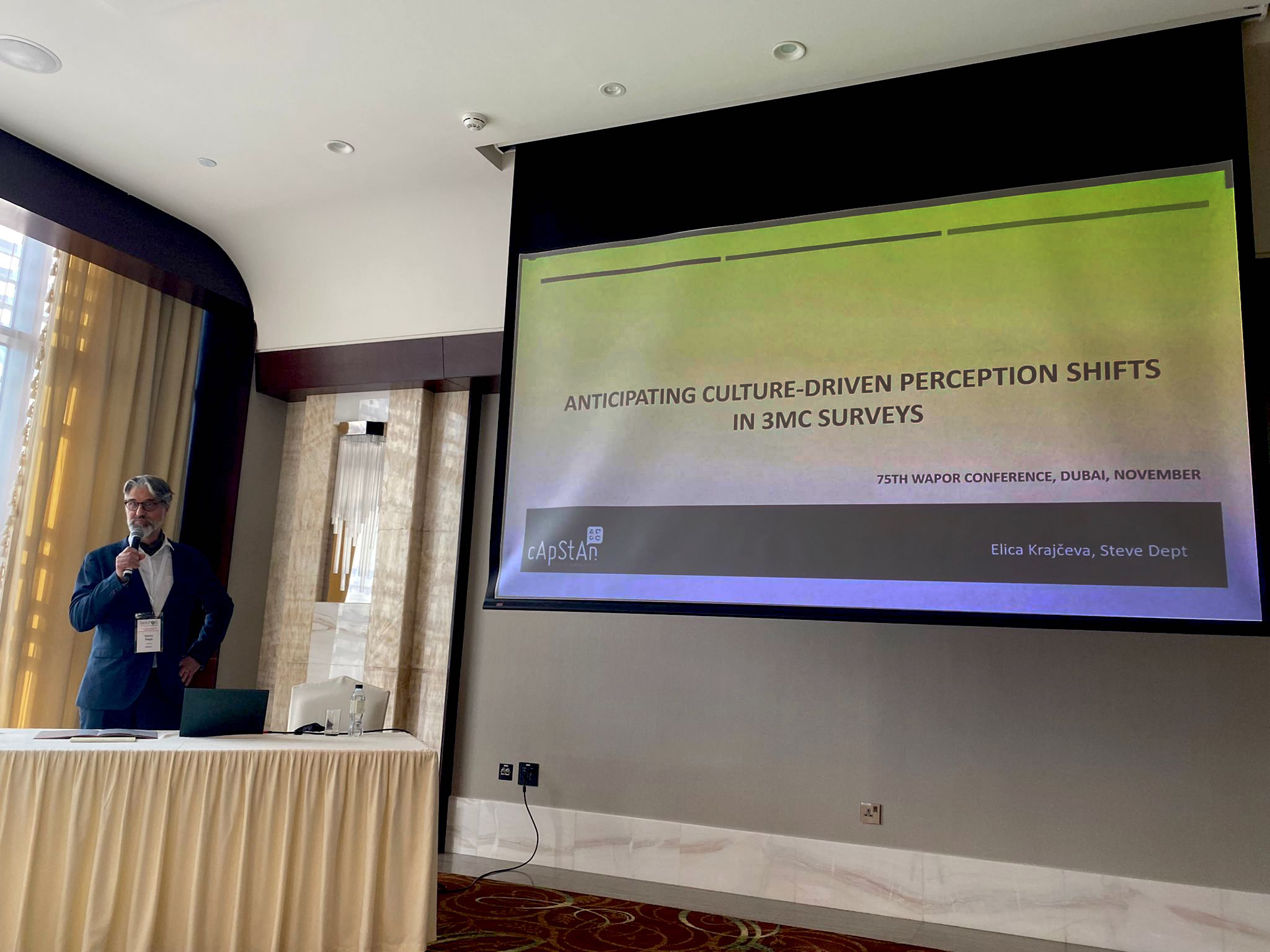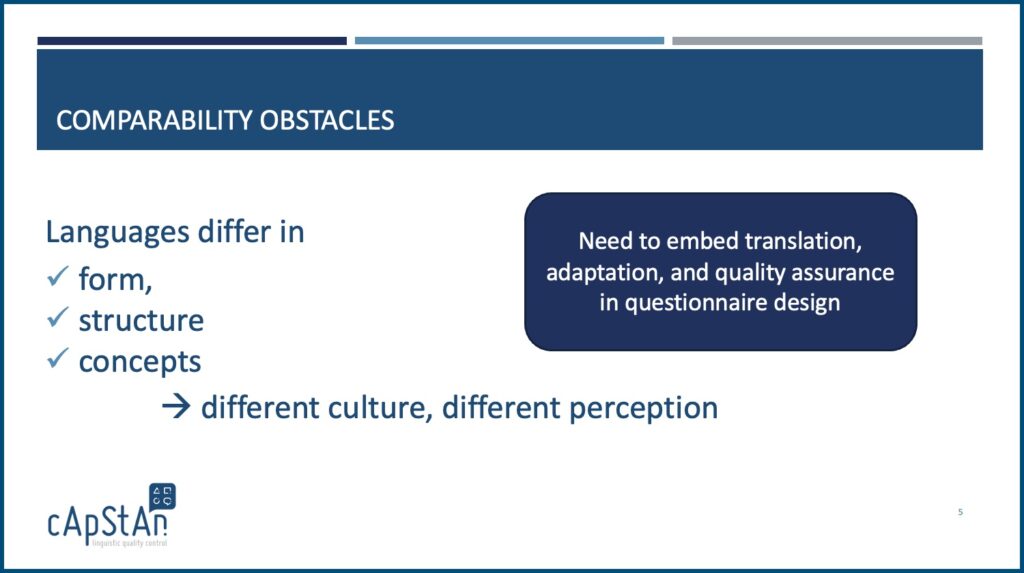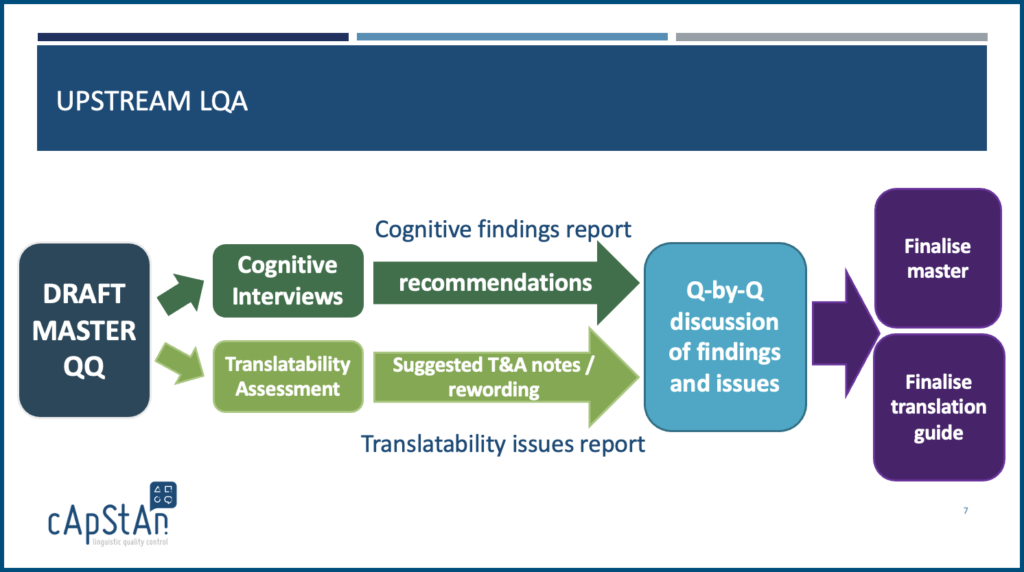
cApStAn founding partner Steve Dept at WAPOR 2022 on how to focus on cross-cultural and cross-language comparability in survey questionnaires
The World Association for Public Opinion Research, WAPOR, is an international professional association for survey research whose members recognise the centrality of public opinion in shaping and serving society. The 75th edition of WAPOR’s annual conference was held in Dubai, UAE, from November 10 to 13, 2022. cApStAn’s founding partner and strategic partnerships director Steve Dept was honoured to present “Anticipating culture-driven perception shifts in 3MC surveys”. In his talk Steve explained how to identify, resolve or mitigate culture-driven perception shifts that can affect the comparability of data. The quality assurance design he described combines the output of a translatability assessment and the observations made during cognitive pre-testing. Even when survey questions are crafted with adaptation in mind, he explained, it is very challenging to anticipate how different groups in different regions, from different cultures and responding in different languages will perceive the questions.

A translatability assessment (TA) is a tried and tested method to optimize the master version of your assessment or survey questionnaire. In many multilingual tests or surveys—not only PISA or PIAAC or Pew Research Center’s Global Attitudes Project—the TA has become an important design step. The TA process increases awareness of translation and adaptation challenges in questionnaire authors: as they process the actionable feedback from the TA linguists, they have a timely opportunity to eliminate unintentional ambiguities or unnecessary complexity from their content, thus making their questionnaire more translatable and more intelligible. Investing in a TA allows early detection of potential translation and adaptation issues, and fixing or preventing these before translation begins is a driver of quality and comparability, so the ROI is high.

Learn more
YOu can find more information on our Linguistic Quality Assurance (LQA) processes at this link and check out our LQA explainer video here